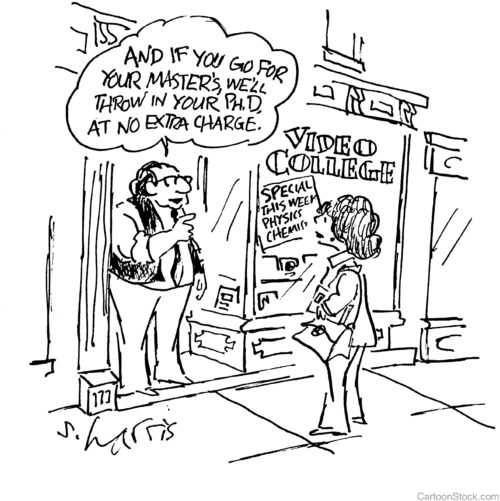
Ann: “Cutting Edge, this is Ann.”
Customer: “I have a great applicant. They got a master’s degree from Whitehall Accordia University.”
Ann (never heard of Whitehall Accordia and after 23 years in the business I’ve heard of most of them): “I’d verify that, just to be sure.”
Customer: “I already did. I called the registrar and verified it!”
Ann (Background screener Spidey-sense is tingling): “How about we background check the university?”
Customer: “Geez. You really enjoy this, don’t you?”
Ann (feels like Sam Spade: Something doesn’t smell right).
I must tell you, loyal readers, that:
Diploma mills are highly profitable.
- $200 Million — estimated amount that diploma mills take in annually
- 500 – estimated number of PhD degrees awarded by diploma mills monthly
- 400 – estimated number of diploma mills.
- 300 – website run by diploma mills
- 98 – number of fake accreditation agencies operating in the US today.
Why bother to get the fake degree? Follow the money. People with bachelor’s degrees earn 85% more than those with a high school diploma. Master or PhD holders earn 45% more than those having a B.S. or B.A.
So, even though the institution verifies that your applicant received their MBA, how do you know the school is bona fide? Most of the diploma mills are accredited. But by who? We must take a step back and accredit the accreditors.
You need to know that, unlike the rest of the world, accreditation in the United States is not done directly by the government. In the United States, numerous private organizations can provide accreditations to a school. The recognized U.S. accrediting organizations all have one thing in common—the accrediting agencies are in turn accredited by one of two nationally recognized agencies (these are just post-secondary):
- The Department of Education limits its accreditation activities to institutions that receive federal money, such as financial aid. You can check them out at ed.gov/admins/finaid/accred/accreditation_pg4.html
- The Council for High Education Accreditation (CHEA) found online at chea.org is the other accepted organization that can accredit the accreditors. CHEA offers a “database of Institutions and Programs Accredited by Recognized United States Accrediting Organization” at www. Chea.org/search/default.asp
The lesson here is that it is remarkably easy to provide fraudulent educational information. Be sure you dig deep enough to get the level of qualifications that you need from your employment candidates.
